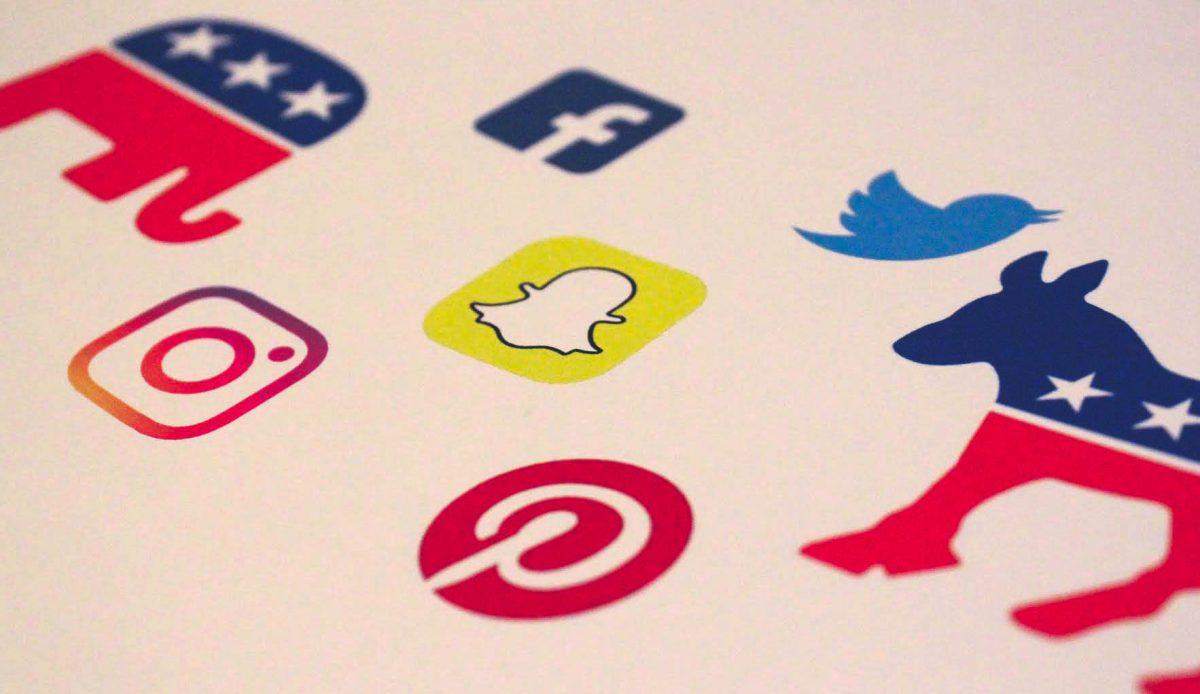If the internet was a planet, it’d be the sun. Today, modern society lives in a world that revolves around the use of the web and mass media on a variety of levels. At the forefront of it all is social media, an ongoing phenomenon that is currently living in its prime. Each day, social media is how we conduct business, get in contact with loved ones and keep up to date with current events. It’s used to gather information and is often referenced as a source in the newsroom.
The presence of social media played a pivotal role in the 2016 presidential election, and the same is sure to be said again this upcoming election. Though media outlets such as Twitter, Facebook and Instagram are known for their massive spreading of information, there are conflicting views over whether social media has had a positive influence on the political election process.
The advantages of using social media as a political forum are abundant. A significant benefit is the instant dispersal of new information. The second something newsworthy occurs during a campaign, thousands of shares and retweets ensure that the public becomes immediately informed. However, the primary attraction of having this outlet rests in the audience that is receiving said information. It’s no secret that a considerable amount of 18 to 24-year-olds use these applications daily. Having these platforms ensure that this demographic, as well as younger audiences, are at least somewhat aware of what’s going on in the world. With links to news stories and live political broadcasts, social media encourages up-and-coming voters to look further into ongoing elections.
Having a social media outlet also allows voters a more personal view on a public figure’s true, unscripted character. All political opinions aside, the public has learned a substantial amount about Trump’s personality via what’s he’s said in his tweets. In this regard, voters can learn about both a candidate’s policy and personality, whether that be for better or worse.
In the next election, it’s extremely likely that many young voters are going to cast their vote based on what they see on social media. This can work to the benefit of a candidate in some instances. This media outlet gives candidates an opportunity to reach out and respond to the voting class without having to schedule a press conference or speak at a scheduled debate. It allows candidates to respond to citizens in a much more informal setting.
Additionally, the massive presence of politics via social media encourages student participation. From taking online polls to spreading the word about protests, newly registered voters can find multiple ways to get politically involved at the click of a button. This applies here on campus as well. Information about the time and location of the national Climate Strike was spread across campus through social media ads and posts, which is why attendees knew how and when to get involved. While local news outlets play their part, social media is an additional and useful way to keep students up to date.
Though, the existence of social media in a political atmosphere has its drawbacks. Because social media has such a dominant presence in society today, it can be difficult to control. While vital information can be expansively shared, so can negativity and bias. Often, people use these social outlets to share their own opinions, which typically differ from others. Any and all political disputes are magnified when it’s taken to these applications. Angry shares and comments encourage negativity based on political belief on a much wider scale. For this reason, people have been known to make their voting decisions based on what everyone else wants, rather than their own values.
In theory, the presence of social media has had a positive influence on the political process due to the extensive spread of information and its attraction to younger generations. However, the union between politics and social media can be tumultuous at times, which is something that is vital to be aware of.
_Edited by Bryce Kolk | [email protected]_








